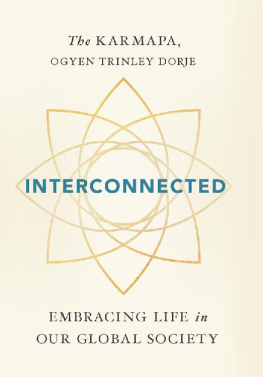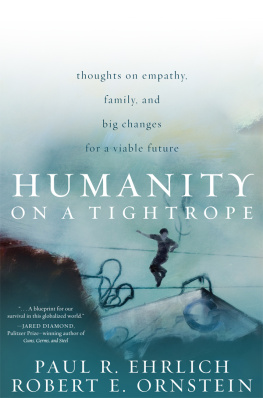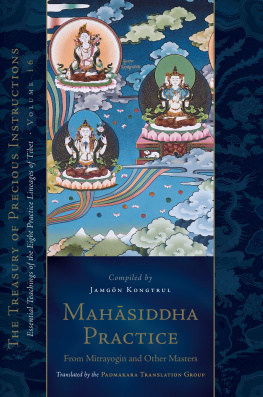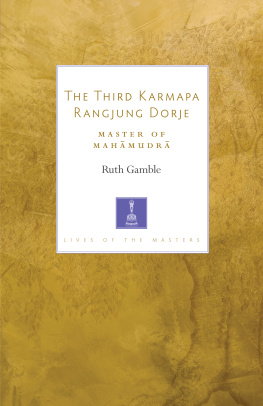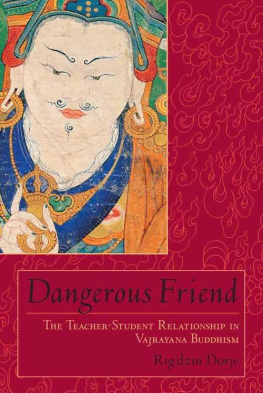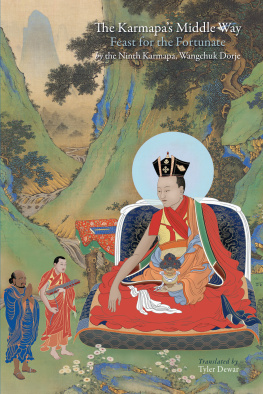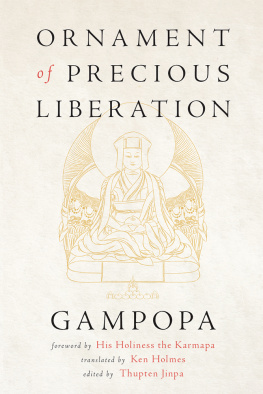More Praise for
INTERCONNECTED
This important book will convince you that a commitment to social and environmental justice flows naturally from mindfulness of interdependence. The Karmapas vision of a heart-centered spiritual practice fills one with hope, even as it addresses the most serious challenges facing us today. One of the most influential Tibetan Buddhist teachers of our times, the Karmapa has written a courageous book that will change how you see your place in the world and inspire you to act to make it a happier and kinder one.
SHARON SALZBERG, author of Lovingkindness
The book records with unassuming clarity the Karmapas meditations on interbeing individual and collective. Any reader who approaches it with an open heart will be richly rewarded.
JOHN STANLEY, director of Ecological Buddhism
During this time of what our people know as the crossroads it is an honor to walk through this time with a Peace Keeper who understands the significance of sacred sites and that Mother Earth is the source of life, not a resource. In a circle of life where there is no ending and no beginning. Onipikte We shall live.
NACA (CHIEF) ARVOL LOOKING HORSE, Lakota, Dakota, and Nakota Nations
A fervent case for humankinds greater attention to personal inter-connectivity and our environmental crisis, made by one of the most brilliant and interesting young Buddhist leaders in our world today. Highly intelligent and filled with honesty, personal reflection, and striking insights on every page, this book urges us not only to under-stand our interdependence intellectually but also to cultivate an embodied awareness of it, both for our own evolution and as a path to living our lives as helpful and responsible world citizens.
JANET GYATSO, Hershey Professor of Buddhist Studies, Harvard Divinity School
Now more than ever, His Holiness the Karmapas teachings provide tools for all of us beyond background, nationality, and culture to work together in our interdependent, interconnected worldwide community. Everyone, and the world itself, will benefit from the profound teachings in this book.
PEMA CHDRN, author of When Things Fall Apart
As the waves of overwhelmedness and fear rise up, we need the teachings in this marvelous book. Interconnected provides the Buddhas prescription of care, responsibility, and engaged practice. Anyone who loves the world will benefit and be nourished by this book.
KOSHIN PALEY ELLISON, editor of Awake at the Bedside

We are now so interdependent that it is in our own interest to take the whole of humanity into account. Hope lies with the generation who belong to the twenty-first century. If they can learn from the past and shape a different future, later this century the world could be a happier, more peaceful, and more environmentally stable place. I am very happy to see in this book the Karmapa Rinpoche taking a lead and advising practical ways to reach this goal.
HIS HOLINESS THE DALAI LAMA
The Karmapa illuminates a major paradigm shift that is already underwayfrom independent and unconnected to interdependent and interconnected. As a visionary thinker, he shows us how this shift can lead us to a healthier planet and happier lives. As a heart-centered spiritual leader, the Karmapa shows us what we need to do to get there.
CHADE-MENG TAN, GOOGLE PIONEER AND AUTHOR OF SEARCH INSIDE YOURSELF
Written by one of the great Tibetan lamas of the twenty-first century, Interconnected provides practical wisdom derived from ancient Buddhist philosophy for modern problems. The solutions that are proposed are accessible and feasible and have the potential to transform many different sectors of our culture. This is a book for everyone!
RICHARD J. DAVIDSON, AUTHOR THE EMOTIONAL LIFE OF YOUR BRAIN AND FOUNDER OF THE CENTER FOR HEALTHY MINDS, UNIVERSITY OF WISCONSINMADISON
Contents
Editors Introduction
W HAT WOULD IT TAKE for people to stop treating happiness as a zero-sum game and start living with confidence that mutual flourishing was not only possible but realistic? To pose such a question may strike some readers as either naive or daunting, but given the challenges facing our world today, this is the kind of shift we need to explore with an open mind and a sincere willingness to act within the possible. In this book, His Holiness the Karmapa shows how much we could change in the world by approaching our lives as profoundly interconnected rather than seeing ourselves as discrete and ultimately separate individuals.
Over the course of the book, the Karmapa offers a sustained reflection on what it would mean to undertake such a paradigm shift particularly in the context of our electronic connectivity. To begin with, he argues, communications technologies are already making our interconnectedness more apparent to us. Acknowledgment of this radically different paradigm is already gaining traction in popular perception, in activist circles, and in intellectual discourse. From a world of siloed societies and independent individuals, many people have begun to recognize that we are interconnected communities and interdependent individuals. Thinkers and activists in fields as far flung as economics, earth sciences, and social justice are collectively creating a multidisciplinary account of the diverse ways that our world functions interdependently. Empirical research provides ample evidence indicating that interconnections operate in every social and natural arena. While the use of the paradigm of interdependence is still relatively new in scientific, academic, activist, and other discussions, the idea that all phenomena are interconnected has formed the basis of Buddhist thought and ethics since its outset.
This book aims to add the voice of His Holiness the Karmapa to present-day conversations that explore global issues through the lens of interdependence. He joins important discussions already urging greater awareness of the instances and effects of interdependence in the world. The Karmapa is particularly concerned with ensuring that our heightened awareness leads to changes in individual and collective behavior, to help build a global society that works in concert with rather than resistant to the realities of interdependence. At the age of thirty-one, he is already a major thinker deeply engaged in environmental and social justice issues, as well as the head of a 900-year-old Tibetan Buddhist lineage and one of Buddhisms most important spiritual leaders. Although the Karmapa is steeped in Buddhist philosophical traditions in which interdependence is a central tenet, he makes very little use of Buddhist terminology to discuss interconnection and claims no particular authority for himself in speaking on these issues. His concern in this book is not primarily to define a Buddhist position on interdependence for those exploring it as a theory, but in exploring the possibilities for social and ethical transformation that interdependence opens up. As a result, this is neither a book about Buddhism nor a particularly Buddhist book. Rather, it is an open process of thinking collaboratively on the basis of our shared human condition and shared concerns for the world.
One unique contribution the Karmapa makes is in extending the discussion to include the working of interconnectedness within us what he calls inner interdependence. The discourse thus far has tended to focus primarily on the principle of interdependence at work in our external conditions in the natural world and in social and economic phenomena. The Karmapa demonstrates that our inner domain is also a site where interdependence takes place, and he makes a strong case that an analysis of conditions that combine to shape our world interdependently must also include our inner conditions if it is to lead to social and environmental change.
Next page
